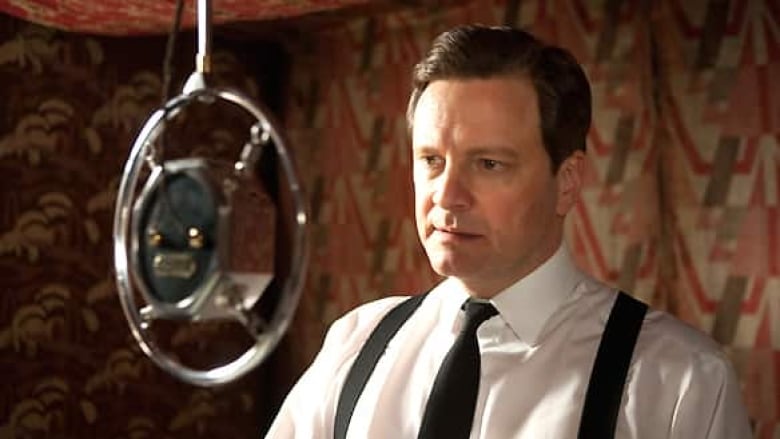Review: The King's Speech
Colin Firth and Geoffrey Rush shine in this historical drama

The Kings Speech is unabashed Oscar bait. Suffocating, upper crust British setting? Check. Inspiring tale of an underdogs triumph over adversity? Check. And if that werent enough, theres Geoffrey Rush, acting with a manic zeal he hasnt displayed since the crowd-pleasing 1996 award winner Shine.
TheKing's Speechis a typical triumph-of-the-spirit movie, but Firth makes you feel the sweat and yearning of that triumph in every frame.
The Kings Speech is as formulaic as it sounds, but its also got one or two tricks stashed up its tidy sleeve. Stylistically polished and featuring two top-notch performances, the film is far better than it deserves to be, and youll find yourself getting swept up in it.
Things begin on a dark note, with the pasty, perspiring Duke of York (Colin Firth) pacing in the wings at the 1925 British Empire Exhibition, as he prepares to deliver a speech on behalf of his ailing father, King George V (a gruff Michael Gambon). When he finally faces the crowd at Wembley Stadium and stares down the unforgiving radio microphone, all the Duke can muster is a series of awkward gulps, interminable pauses and mangled screeches and squawks.
The mortifying event leaves the Duke determined to seek help for his debilitating stammer. His compassionate wife, Elizabeth (Helena Bonham Carter, making the most of her stands-by-her-man Queen Mum role), finds it in the form of failed actor-cum-speech therapist Lionel Logue (Geoffrey Rush). Running his practice out of his cluttered apartment, Logue is a true eccentric, decked out in rumpled suits and boasting of his "controversial and unorthodox" therapy methods.
Logues touchy-feely approach is a tough sell for the uptight Duke, who nearly does a spit-take when the salt-of-the-earth commoner insists on calling the Duke by his pet name, "Bertie." But Bertie hangs in. Hes fed up with the sound of his own herky-jerky voice, and also knows the dreaded day approaches when his irresponsible, divorcee-smitten brother King Edward VIII (Guy Pearce) will abdicate the throne.
Director Tom Hooper (The Damned United) and screenwriter David Seidler are clearly intent on capturing a unique moment in British history one where the royals found themselves thrust into the limelight, forced to use the radio as a means to "invade peoples homes" and ingratiate themselves to the public, as King George V sourly notes early on. In one of the films more ironic twists, newsreel footage shows Hitler succeeding in Germany largely based on his oratory skills, while the tongue-tied would-be king Bertie barely registers with the English. For all his good intentions and quiet ambitions, his stammer ensures hes lost in this new landscape.
Despite its classy period sets and whos-who roster of fine English actors (Timothy Spalls bizarro Winston Churchill impersonation is worth the price of admission), The Kings Speech isnt all that interested in the British monarchy. Hooper is about feeling good, and devotes most of the movie to Logue and Berties therapy sessions, where the emphasis is placed squarely on that most American of concepts: healing ones inner child.
Precious as that sounds, its also what makes The Kings Speech a cut above most other British biopics. Cinematographer Danny Cohen busts out of the stuffy Merchant-Ivory framings and goes for something far more interesting. Shooting Bertie from high, off-kilter angles, trapping him in tight doorways and squashing him with fish-eye lenses, he gives the viewer a palpable sense of the future kings never-ending anxiety. Trapped in a body that constantly betrays him, hes not comfortable anywhere, and Cohens camera ably creates an atmosphere where everything feels vaguely woozy, not quite right.
Its up to Logue to uncover whats amiss, and The Kings Speech achieves liftoff once he starts poking around inside Berties repressed head. The stammer is rooted in childhood trauma, and the earthy Australian prescribes all manner of weird exercises, which include rolling around on the floor like a worm, letting loose long, uninterrupted strings of very blue language and belting out ones innermost feelings to the tune of Camptown Races.
These therapy montages could play as some awful Lee Strasberg exercise were it not for Rush and Firth, who elevate The Kings Speech at every turn. Though theyre essentially re-enacting the good parent doctor/wounded WASP son dynamic Judd Hirsch and Timothy Hutton played out in Ordinary People, Rush and Firth make it feel like Shakespeare. Its heartening to see Rush, often stuck in bit parts in recent years, attacking his role with such glee he twinkles every time hes on screen, and his warmth rubs off on the audience.
Just as Logue will coach and nurture Bertie to a career-defining speech at the onset of the Second World War, Rush is content to support his co-star, who gives a flawless performance as the tortured royal. To play Bertie, Firth has to nail that stammer, and he achieves amazing things with his wobbly lips, scrunched-up eyes and jutting chin. He thrusts his words out in an agonizing, full-body heave thats painful to watch.
While this is an amazing physical stunt the kind that wins prizes its everything else that Firth does in the film that makes his performance great. Bertie might be afraid, but hes no sissy, and the actor always hints at the stifled ambition and genuine rage that are simmering just under his composed surface.
Hes painfully human, and when he shouts "I have a voice!," he does so with such urgency that even the most hard-hearted viewer will be cheering him on. The Kings Speech might be a typical triumph-of-the-spirit movie, but Firth makes you feel the sweat and yearning of that triumph in every frame.
The Kings Speech opens Dec. 10.
Lee Ferguson writes about the arts for CBC News.












_(720p).jpg)


 OFFICIAL HD MUSIC VIDEO.jpg)
.jpg)



























































































